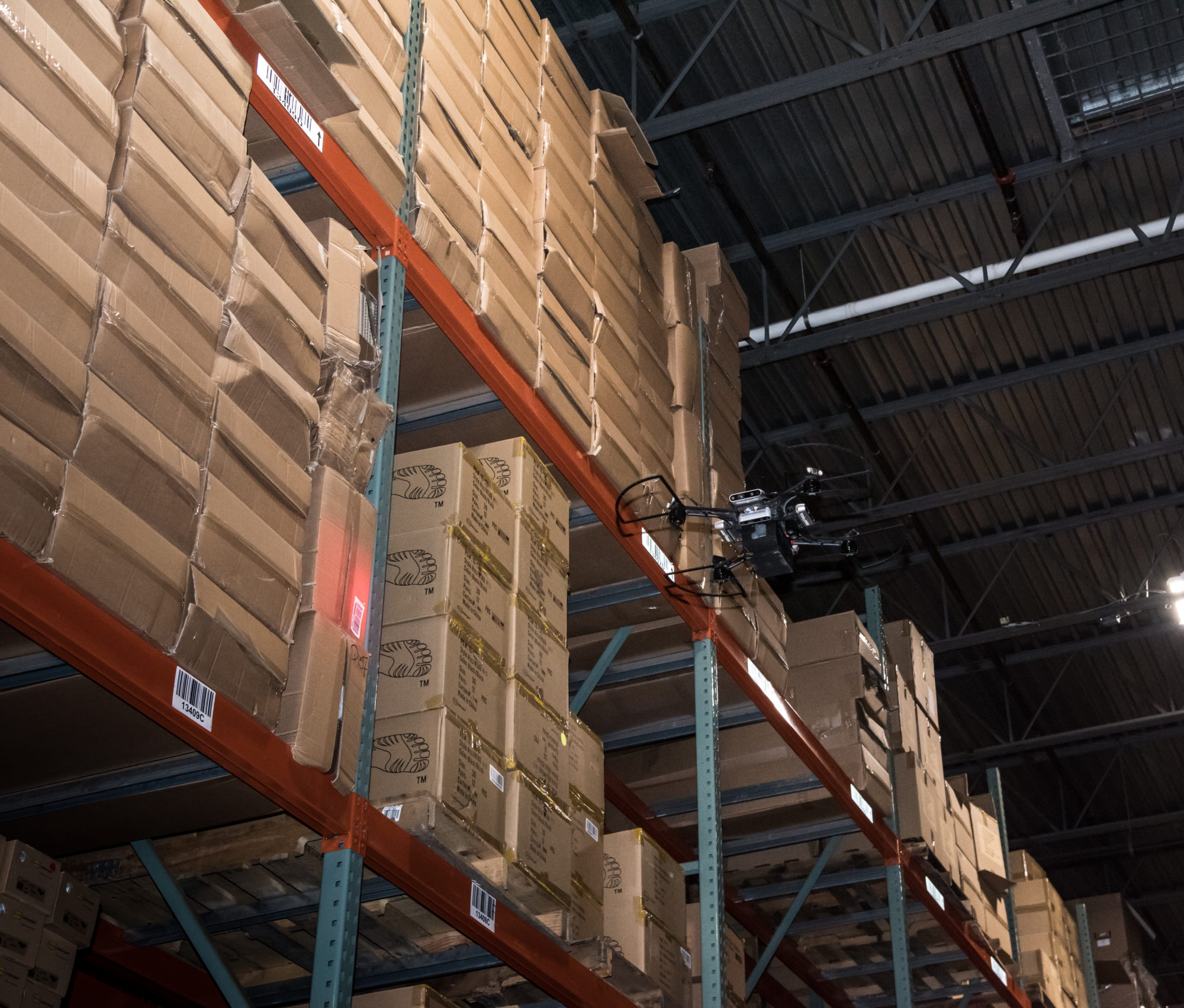
Inventory reconciliation today is a manual job, and every single manufacturer and warehouse has to get it done.
Here’s the whole job:
- Climb into a forklift or bucket truck
- Scan each box at that level of the rack
- Lower the platform down to the next level of the rack
- Scan each box at that level
- Move the forklift over by 4 feet, to the next horizontal section of rack
- Repeat.
At almost every stage of human development, after a new invention speeds up most menial and repetitive tasks, we look back at how primitive we used to be. We think, “That old way of doing things was such a terrible use of a creative, thinking, feeling human being’s time.” This will be true for this list of intense drudgery, too.
My first job out of college was at a manufacturing company. And as much as I love software and living and working online, I use the physical goods made in a factory to live every part of my life.
Manufacturing should be an engine for any country. The type of manufacturing that a country focuses on could change based on their level of automation, but ignoring it is a mistake.
As I think about the future of manufacturing in the US, I see a lot of intensely drudgerous work that humans don’t want to do unless they absolutely have to. It’s possible to give people a better standard of living with more meaningful work. But first we need to build some infrastructure to make that possible—including reshoring, re-educating, and making machines remotely operable.
The US needs a thriving manufacturing sector. At the same time, we should unleash human potential to address higher-order problems.
We recently invested in Corvus Robotics, which moves us forward in both of those areas. Corvus builds autonomous drones that can scan inventory efficiently by flying through the aisles. The drones can fly 24 hours a day, even in a dark warehouse. And once they’re done with a flight, they land back on their docks, and the data is uploaded.
Does Corvus replace humans who used to do this job? Yes. And it collects the data faster, cheaper, and more efficiently, and it also provides insights that a human couldn’t. Because the drone is taking pictures instead of only scanning bar codes, it can also provide important information on which shelves are partially empty. As Corvus roll out more products, they will be able to track the movement of inventory more accurately in a way a human (or group of humans) cannot.
And equally importantly, the humans are now freed up to do safer and more interesting jobs.
I’m excited for the future that Corvus and others like them will build!
P.S. If you’re building software in any part of the manufacturing process, please get in touch.